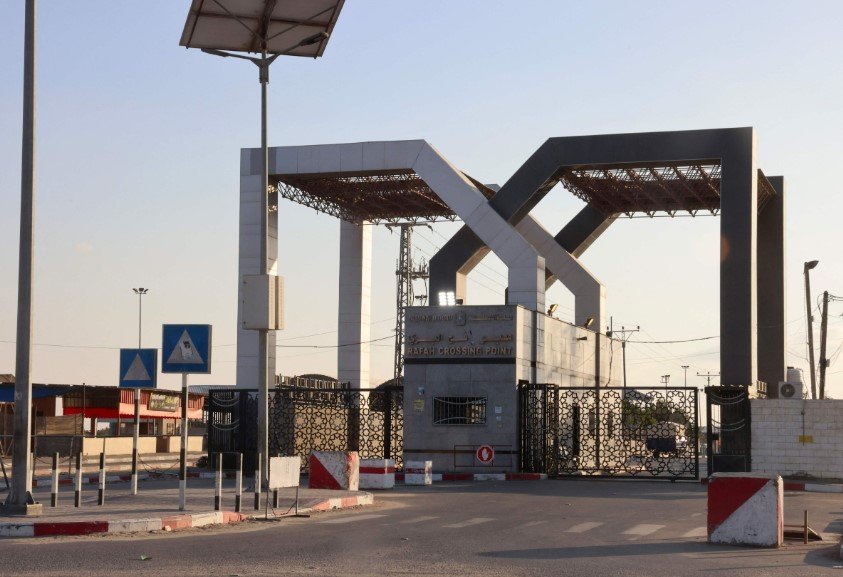Once a central broker in Arab diplomacy, Cairo now finds itself shouting from the margins as others lead the Gaza ceasefire push
For decades, Egypt stood at the center of Arab diplomacy. Now, it’s trying to claw its way back into the room.
This week, President Abdel Fattah el-Sisi launched into a fiery tirade against both Israel and Hamas, accusing them of fueling chaos in Gaza and pushing Egypt into an unwanted corner. But behind the rhetoric lies a harsher truth: Egypt’s grip on regional diplomacy, especially around Gaza, is slipping fast.
A Loud Voice with Less Echo
At a press conference with Vietnam’s president on Tuesday, Sisi didn’t hold back. He accused Israel of turning Gaza into a “marketplace of chaos” through starvation and destruction. He also took aim at Hamas—without naming names—for implying Egypt was part of the siege.
The tone was angry. But the volume, frankly, didn’t carry far.
For years, Egypt was the go-to negotiator when the Israeli-Palestinian conflict flared up. Cairo brokered ceasefires, opened humanitarian corridors, and balanced regional tensions like a seasoned juggler. Today? The juggler’s been pushed offstage.
One Egyptian official, speaking anonymously, admitted: “We used to get calls from the White House. Now we hear things through the news like everyone else.”
US Indifference and the Gulf’s Rise
Egypt’s fading leverage isn’t just internal—it’s geopolitical. Washington, once closely tied to Cairo, now looks to other partners.
In the current Gaza talks, it’s Doha and Ankara—Qatar and Turkey—who are playing front and center roles. Egypt? Still involved, but not leading.
Meanwhile, the UAE and Saudi Arabia have poured billions into reshaping regional power dynamics, throwing Egypt’s economic dependence into sharp relief.
To make matters worse, the Biden administration seems to be in no hurry to re-elevate Egypt’s role. And Donald Trump’s possible return to the White House doesn’t guarantee Cairo will fare better. His past term focused more on Gulf allies than on Sisi.
This diplomatic shrug from Washington stings.

Economic Woes Are Weighing Heavy
You can’t project power if you’re broke. Egypt knows that now more than ever.
Inflation has hammered Egyptian families. The Egyptian pound has lost more than half its value since 2022. Foreign investors? Many have fled.
Let’s break that down with some hard numbers:
| Indicator | Value (2025) | Change Since 2022 |
|---|---|---|
| Inflation Rate | 37% | ↑ 21 percentage points |
| Egyptian Pound (vs. USD) | 1 USD = 60 EGP | ↓ 54% in value |
| Foreign Direct Investment | $3.1B | ↓ from $9.8B |
| Public Debt-to-GDP Ratio | 96% | ↑ from 88% |
The country’s finances are under immense strain. That matters because regional influence isn’t just about diplomacy—it’s about credibility. Egypt once had both. Now, its neighbors are watching it struggle just to stay afloat.
Sisi’s Blame Game
Sisi’s speech Tuesday was more than frustration—it was a calculated deflection.
Blaming Israel for border closures? Not inaccurate, but also not new. Hamas accusing Egypt of tightening the noose? That’s been simmering for months.
But Sisi’s core message was one of helplessness wrapped in outrage: Egypt isn’t starving Gaza, Israel is. Egypt isn’t blocking aid, Israel is. Egypt wants peace, but others hold the cards.
And yet, none of this changes the perception in Gaza and beyond: Egypt has lost its muscle.
One senior Palestinian analyst told an Arabic-language TV channel, “People in Rafah aren’t seeing the trucks. They’re seeing hunger. And to them, Egypt’s border is still Egypt’s border.”
Diplomacy by Apology and Delay
Just days before his remarks, Sisi made a rare diplomatic outreach—calling the Dutch prime minister to apologize for a bizarre incident. An Egyptian student had locked embassy gates in The Hague, temporarily trapping diplomatic staff inside.
It was a small incident, but the fact that it was Sisi’s most recent reported call with a world leader says something.
Cairo has hosted multiple rounds of talks since October 2023. But in the most recent push for a ceasefire between Israel and Hamas, Egypt has been largely absent from headlines. Qatari and Turkish diplomats have been photographed sitting beside CIA Director Bill Burns and Mossad chief David Barnea.
Sisi? Not in the frame.
Who’s Driving the Gaza Conversation Now?
As regional powers shift, so do the centers of influence. Egypt’s traditional leverage—geographic, political, and cultural—has eroded.
Here’s who’s been most prominent in recent ceasefire negotiations:
-
Qatar: Hosting Hamas leaders and mediating directly with the U.S.
-
Turkey: Leveraging ties to both Hamas and NATO.
-
United States: Managing coordination with Israel, pushing ceasefire terms.
-
Israel: Controlling border dynamics and dictating conditions for hostages and aid.
Egypt is still present, yes. But it’s no longer essential.
The View from Cairo
Inside Egypt, Sisi’s critics are growing louder. The economy’s squeeze has reached the military’s pockets, which is no small deal in a country where the armed forces control significant chunks of business and infrastructure.
Even some inside the ruling establishment are worried.
“Sisi thought he could use Gaza to regain prestige,” one Cairo-based academic said. “But instead, it’s shown how much he’s lost.”
Publicly, Sisi maintains his assertiveness. Privately, there are signs of nerves. His government recently tightened security around sensitive buildings and ordered state media to focus on humanitarian aid stories rather than diplomatic snubs.
People on the street? They’re tired. They hear about border closures and Israeli bombings, but also about IMF loans and onion prices.
Sometimes, it all blurs together.
